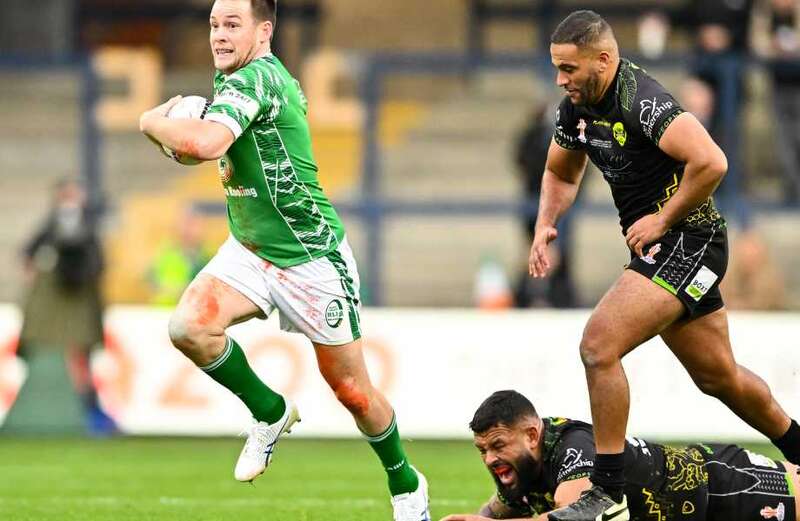RUGBY league’s Test chiefs insist blocking Scotland and Ireland from the next World Cup is not a sign of southern hemisphere bias.
Instead, they believe it will make the sport in the northern hemisphere stronger.

Lack of participation is the reason why the home nations, plus Italy and Lebanon, have been downgraded from full members to affiliates by International Rugby League.
That rules them out of qualification for the next tournament in 2026, although the latter will play as they reached the quarter finals in 2022.
But even though it is an undoubted blow to northern hemisphere nations – many top players will now not be able to represent their heritage on the biggest international stage – IRL is adamant it is not writing off one half of the world.
 Putin accused of surrounding himself with same 'actors' at series of events
Putin accused of surrounding himself with same 'actors' at series of events
Secretary-general Danny Kazandjian, who also saw already-suspended Russia relegated, told SunSport: “This is certainly not a sign of northern hemisphere weakness.
“On the contrary, it’s now up to those countries to develop the sport through growing the number of local registered players and active clubs who are playing in increasingly long and more substantive championships.
“Only by doing that will rugby league gain popularity and strength in a country and that is the fundamental remit of any national federation.
“In addition, the other European full members all showed growth in the key registered players sections and there are some terrific northern hemisphere organisations in Europe, the Americas and Africa all of whom are pushing the game’s boundaries in a sustainable way.
“Being in a World Cup has not been a sign of rugby league being strong in a particular country, it’s just a sign that the national team that country can field is strong.
CASINO SPECIAL - BEST CASINO WELCOME OFFERS
“Ireland, for example, has been in every modern men’s World Cup but there has been no correlation between those appearances and the sport growing in Ireland.
“Rugby league’s global growth depends on IRL’s most important asset – its national federation members – developing the sport locally and authentically.”
After the World Cup shrank from 16 teams to 10, this move is the latest blow to northern hemisphere rugby league.

IRL say the fact they did not meet terms of its membership policy, in which nations of their size must have a minimum of 250 locally-registered players, four member clubs, states or provinces, a senior competition of at least six teams and a tournament featuring at least four in the under-15 to under-19 age group, are behind the call.
 Russians wrote 'Happy New Year' on drone sent crashing into playground
Russians wrote 'Happy New Year' on drone sent crashing into playground
Countries must have a women and girls’ development programme and a minimum three-year business plan.
Kazandjian added: “While all five nations reclassified to affiliate member have different records, the common factor is participation.
“All five full members fell short of those minimum standards.”
Rugby League Ireland chairman Jim Reynolds believes his organisation has already taken steps aimed at quickly regaining full membership.

"RLI thanks IRL for recognising the significant transformation we have achieved since Covid-19 in addressing the non-compliance issues that have been raised with RLI for the last 10 years," he said.
"We have worked hard to exceed the standards in good governance and with our youth groups becoming one year older, they will now also qualify to allow us regain full IRL membership status this year end."
IRL says the respective governing bodies have been non-compliant with the terms of the IRL membership policy for up to five years and each will receive a parachute payment to invest in areas in which they do not make the grade.
Kazandjian continued: “We work continuously with member federations to improve their operations and governance, and we are seeing standards increase on and off the field.
“Over a long arc, ensuring compliance with IRL’s regulatory framework will result in a bigger, more durable, more prolific sport.”


































